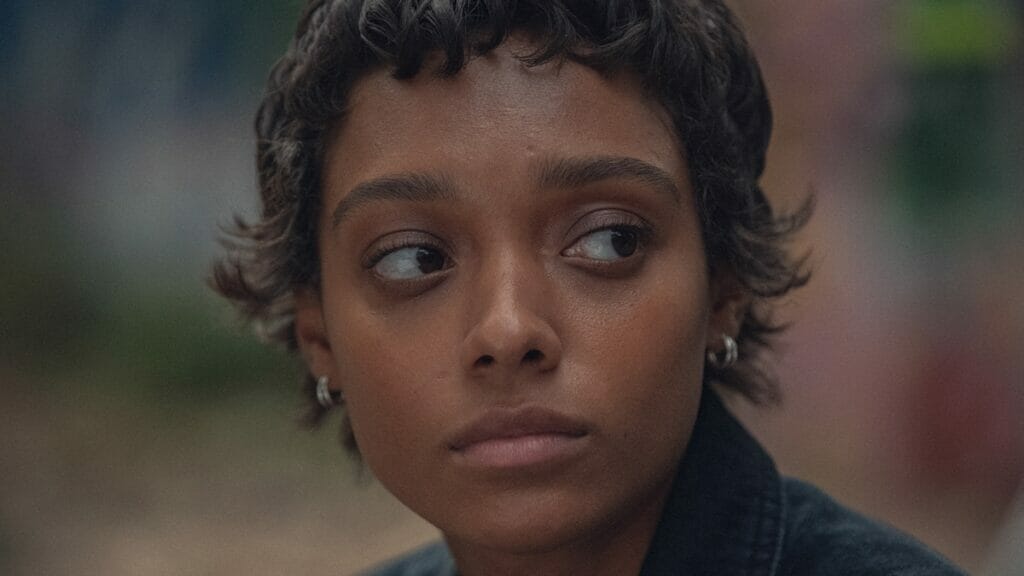Read also:
How to Watch FX Live Without CableHow To Watch AMC Without CableHow to Watch ABC Without CableHow to Watch Paramount Network Without CableBy refusing to tell a simple story of recovery, the Netflix drama brings nuance and complexity to often underserved plotlines.
This piece was written during the 2023 SAG-AFTRA strikes. Without the labor of the actors currently on strike, the works being covered here wouldn’t exist.
As the TV series Everything Now begins, Mia (Sophie Wilde) is eager for freedom. After spending months in a hospital undergoing treatment for her anorexia, her supervisor, Dr. Nell (Stephen Fry), has decided she’s well enough to return to school with her best friends Becca (Lauryn Ajufo), Cam (Harry Cadby), and Will (Noah Thomas). Cooped up inside for what seemed like an eternity, Mia is bursting with enthusiasm about finally undergoing many teenage rites of passage like first dates and big parties.
Unfortunately, returning to reality isn’t as easy as picking up where she left off before her hospital stay. Everyone around her at school and home knows of her medical condition. They repeatedly remind her of the restrictions she has to maintain for the sake of her health. As a horrific cherry on top, the social world she felt so excited to return to proves a nightmare to navigate. Even her closest friends often seem like strangers. Despite her handy list of teenage ambitions—colorfully titled “The Fuck-It Bucket”—the future feels full of doubts, not promise.

The razor-sharp writing of Mia’s internal monologue proves one of Everything Now’s best touches. Unfurling while she walks through ordinary settings, the dissonance between the heavy dialogue and nonchalant backdrops suggests the psychological weight Mia still grapples with. A simple stroll can inadvertently trigger unhappy memories or reminders of perceived personal defects. These scenes also allow Everything Now to probe more deeply into the psychology of people with eating disorders, a welcome change of pace from the shallow treatment they usually receive in pop culture.
The best example comes in the second episode as Mia timidly walks through a mall. She repeatedly stares at the other women there and the models on billboards. “People think anorexia is all about being thin,” Mia asserts, dismissing the notion a moment later. She argues that her contempt for her body is instead rooted in “feeling like I’m the wrong kind of feminine, like I missed the day where they taught you how to be a real girl.” It’s such a raw, stirring confession, perfectly complimented by Wilde’s haunted and yearning facial expressions. In this unforgettable sequence, Everything Now demonstrates a deeply vulnerable writing that confirms its empathy.
As the series marches on, another great element of head writer/creator Ripley Parker’s creative approach emerges: the willingness to let Mia be an asshole. She’s standoffish, abrasive, and an outright jerk to the people closest to her at times without losing the audience’s sympathies. The writing is sharp enough to make Mia’s most mean-spirited actions understandable without excusing them. As a result, she’s defined by more than her anorexia.
The razor-sharp writing of Mia’s internal monologue proves one of Everything Now’s best touches.
Embracing that nuance and discomfort serves Everything Now extremely well, lending depth to the storytelling, as well. A secret affair between Becca and Cam or Mia’s crush on a lady she spies at a party, for instance, could’ve been melodramatic slop in lesser hands. Here, it’s all realized with enough heart and authenticity to captivate even the most cynical viewers. Realizing these moments of yearning with lovely visual sensibilities with elements like slow-motion or distinctively unrealistic lighting choices doesn’t hurt. These flourishes vividly accentuate how larger-than-life these emotions feel for Mia and company.
Unfortunately, it doesn’t dodge all the contrived tropes of interpersonal conflict. Still, this is a shockingly effective program with classic episodic storytelling. Each episode has a distinct standalone narrative! Best of all, it’s an excellent showcase for the talents of leading lady Wilde, whose deeply expressive eyes alone often communicate a swirling vortex of emotions. Her striking work achingly captures how, sometimes, freedom can feel as confining as imprisonment.
Everything Now makes mistakes on the path to improvement on Netflix now.